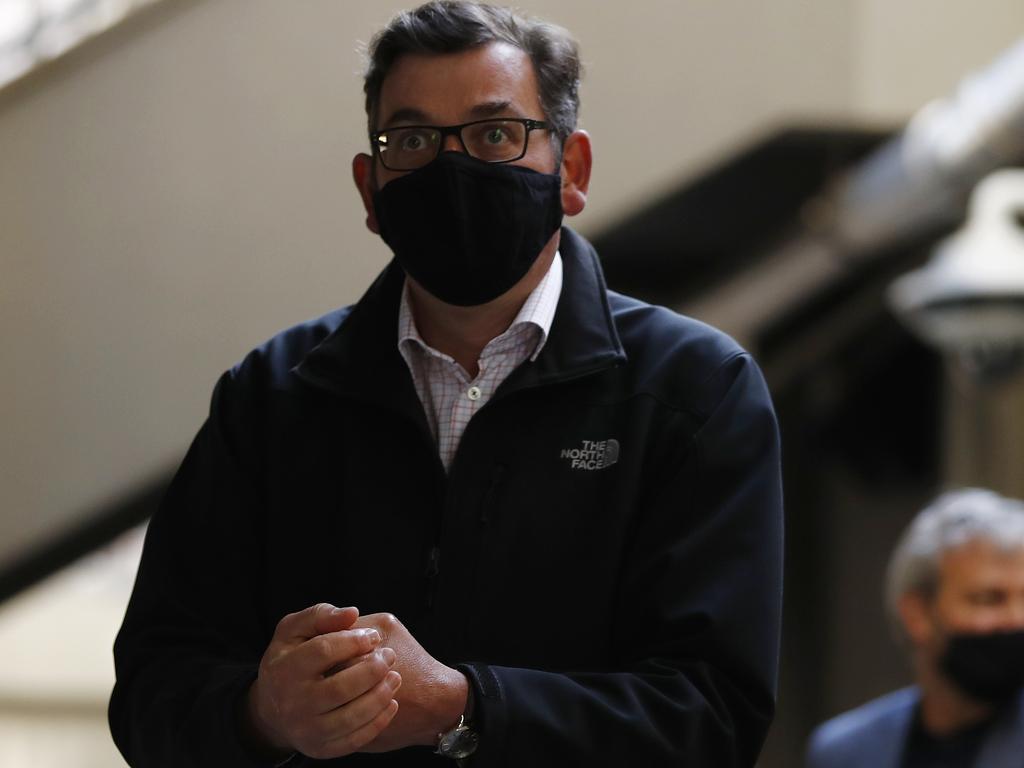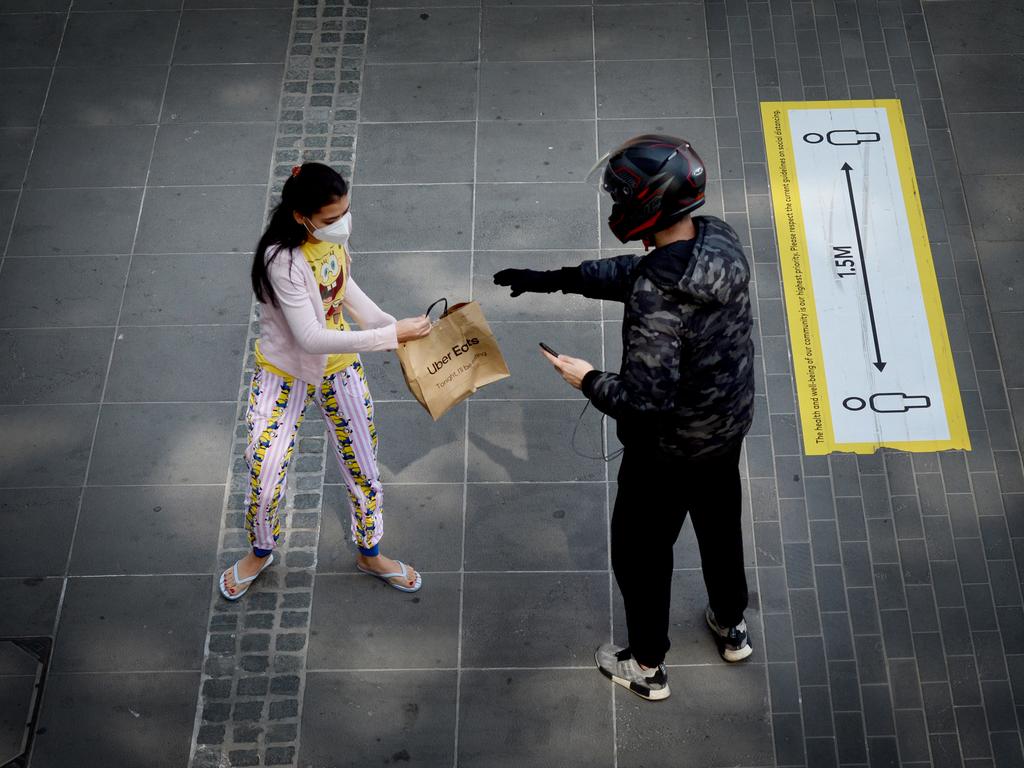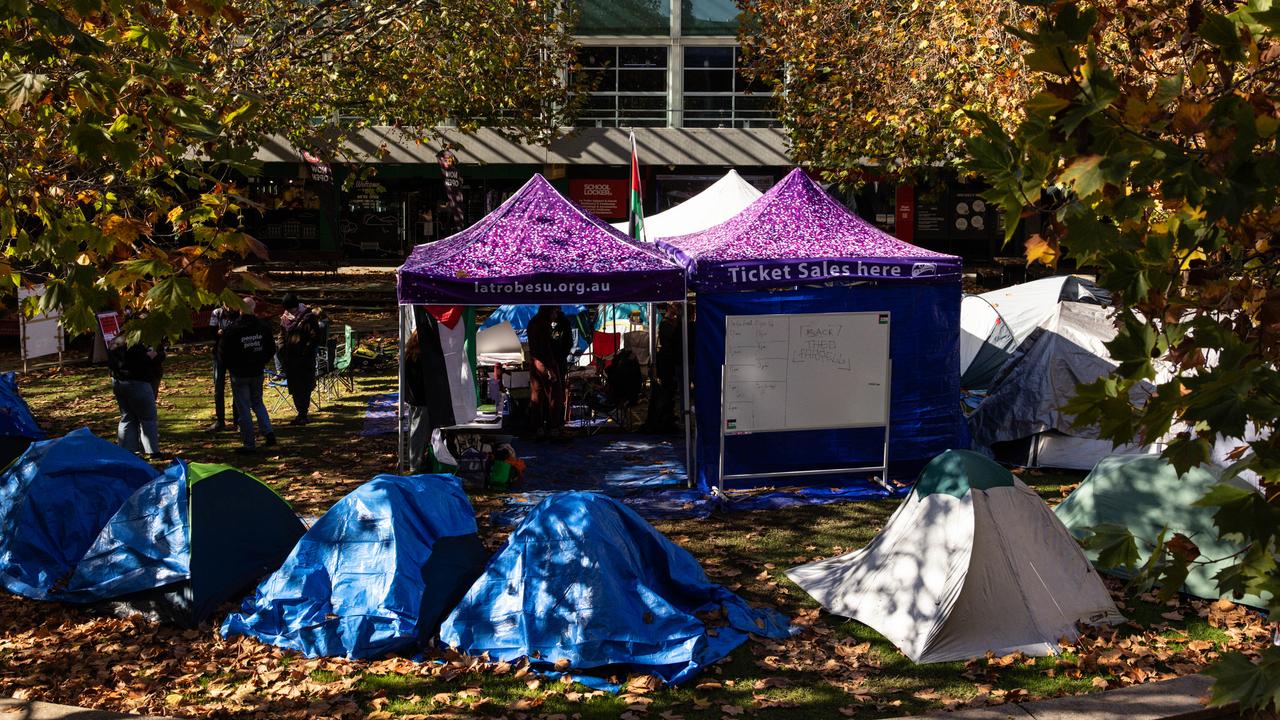Northern Territory police officer Zachary Rolfe to face murder trial over death of Yuendumu man Kumanjayi Walker
Zachary Rolfe will stand trial for the alleged murder of Yuendumu man Kumanjayi Walker.
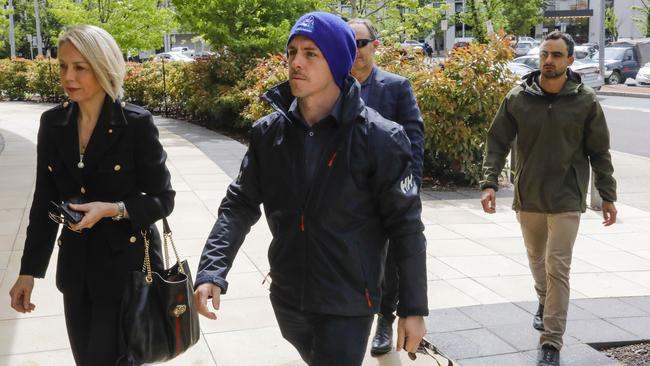
The first shot police officer Zachary Rolfe fired at 19-year-old Indigenous man Kumanjayi Walker was self-defence.
The second and third shots — fired within the next 3.6 seconds — were murder, according to prosecutors who yesterday won a bid to have Constable Rolfe, a decorated officer and military veteran, tried before the Alice Springs Supreme Court.
Constable Rolfe, who has not yet been ¬required to enter a plea, has ¬indicated he will fight the murder charge.
The matter will have its first mention in the Supreme Court on November 25, when Constable Rolfe is expected to appear via videolink.
The 29-year-old has been on bail at his parents’ Canberra home and appeared via videolink from the ACT Magistrates’ Court on Monday to hear Judge John Birch rule prosecutors had established a prima-facie case.
Judge Birch sent the matter to the Supreme Court for trial but then — at the request of Constable Rolfe’s defence counsel — suppressed his reasons for doing so.
David Edwardson QC, appearing for Constable Rolfe, told the court the judge’s reasons “could potentially prejudice a fair trial”.

Constable Rolfe was charged just days after the shooting on November 9 last year, during which he fired his Glock three times into the body of Walker, 19, as the Indigenous man allegedly stabbed the policeman and his partner with a pair of scissors.
The officers, based in Alice Springs, had gone to the remote central Australian community of Yuendumu as part of a police Immediate Response Team to arrest Walker on four charges including assaulting police with an axe and breaching a suspended sentence.
The court heard Constable Rolfe fired three times at Walker as the man scuffled with officer Adam Eberl. Prosecutors argued that, although the first shot may have been justified, the second and third shots were not.
The court heard the second shot, fired as Walker and Eberl struggled in the dark house, came just 2.6 seconds after the first shot. One second later, the third shot was fired.
Barristers for NT Police called evidence from a criminologist and sociologist, Geoffrey Alpert, who said he believed “after that (first) shot was fired he had the time, the distance and the ability to reassess and in those few seconds realise he could respond with hands on.”
Dr Alpert said he believed Constable Rolfe would have been justified even if he had fired two shots in quick succession after being stabbed instead of one shot.
But he said that, after the first shot Constable Rolfe should have reached for other accoutrements such as a Taser or capsicum spray, instead of firing again.
Under cross-examination from counsel for Constable Rolfe, however, Dr Alpert agreed it would have taken more time to unholster, charge and deploy a Taser than to fire the shots.
“You opine that Constable Rolfe was in a dangerous, adrenaline-driven, high-stress encounter, at the commencement of that encounter he had been stabbed, that it was likely he didn’t know the extent of his injuries, and that against that background he’s required to make what you described as split-second decisions,” defence counsel Anthony Allen said to Dr Alpert.
Another officer told the court police training was clear that “if an edged weapon is produced by another person, then we are to take our firearm out”.
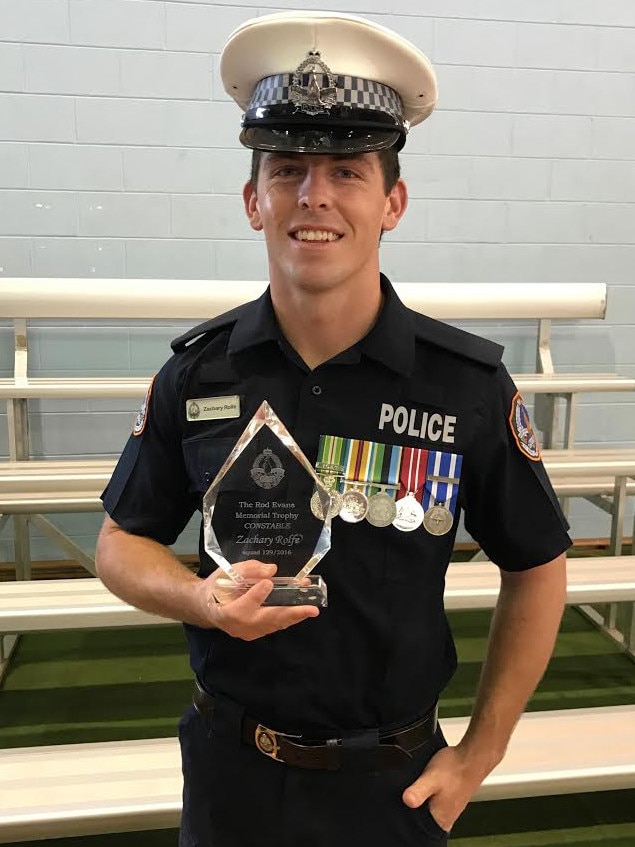
“We have a little catchphrase of ‘knife equals gun’,” Constable James Kierstenfeldt, who was also present at the shooting, told the court.
The court also heard disputed accounts as to whether Walker’s arm — the one holding the scissors — was pinned underneath him as he struggled with Constable Eberl.
Professional Standards Command officer Detective Senior Sergeant Andrew Barram said he believed Walker’s arm was pinned beneath his body — but counsel for Constable Rolfe ¬suggested he was “deliberately wanting to put forward the most sinister interpretation … rather than accepting that there may be alternative explanations for what happened”.
Constable Rolfe has not been required to enter a plea but has indicated he will plead not guilty to the murder charge. Three days before the shooting, Walker had brandished an axe at two Yuendumu police officers when they attempted to arrest him for breaching a court order.
On that occasion Walker fled into the desert.
At Constable Rolfe’s committal hearing, his lawyers argued he had no case to answer.
The death sparked “Justice for Walker” rallies around Australia, where protesters wielded “Black Lives Matter” signs and expressed outrage that another Indigenous person had died in custody.
After Walker’s death, police remained with his body in the Yuendumu police station, having attempted first aid with limited medical supplies.
The community’s nurses had left the community after several break-ins to their clinic and living quarters before the shooting.
Nurses from the nearby community of Yuelamu came to Yuendumu in an ambulance, and police officers were flown in as angry community members waited outside the watch-house for news of Walker.
On Monday, elders gathered outside the Alice Springs courthouse awaiting the judge’s decision, which was delayed from 10am local time to 2pm after the court experienced technical problems with its audiovisual links.

